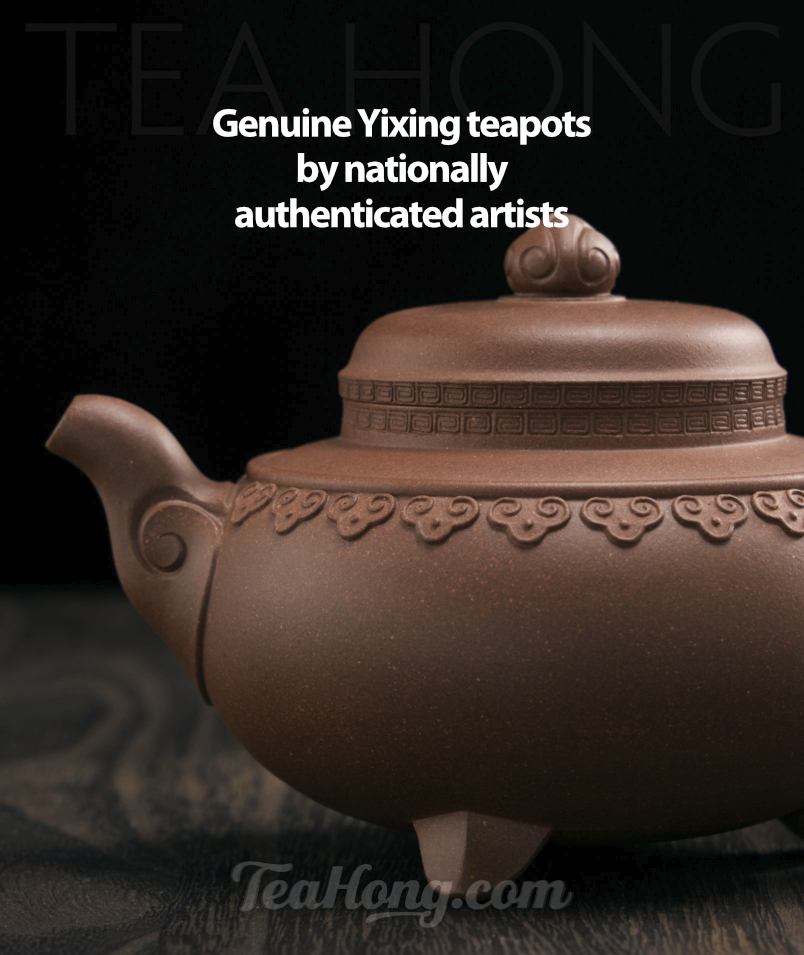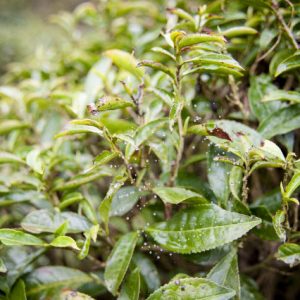Yunwu, Cloud & Mist Green Tea

Yunwu 雲霧, an affordable machine roasted whole leaf green tea produced in many regions in China. This same tea (and many others) has been seen marketed in any famous green tea name: Huangshan Maofeng, Biluo Chun, etc.
Yunwu translates as “Clouds & Mists”, a Chinese expression that describes the two kinds of condensation that happen so very often together in mountainous areas with higher humidity — an ideal for finer tea farming.
This tea itself looks nothing special, however. It is basically a hand plucked green tea that is produced quite mechanically. Almost all major green tea regions in China produce at least one version of this, some have fancier names. To the experienced trader and the tea farmers, this simply is a better quality “caoqing”, or roasted green.
The name Yunwu has been common in a few regions because it has an aura of “famous tea” name to it. Some high-end green teas do have that in their suffixes.
The real great thing about a high quality caoqing is that it does not have a high-end market, so the price is generally much lower than any other green tea with more famous names. Since most of its later stages of production are mechanized, its production can better utilize the influx of the great amount of fresh tealeaves during Spring harvest, when skilled green tea hand-processing is in extremely high demand, but the leaves can’t be sitting there wasted.
In another word, if your green tea sourcing agent really reaches out to search it, it is very possible to find a green tea of the near taste character of certain big name green tea, in a nearby production region, and at very reasonable price.
In this review, we shall look at a Yunwu from Songxi, Fujian, one of the many regions in Fujian that had its beginning in producing a Fujian version of Songlo to satisfy export needs, way back when European just began to buy tea from China.
taste
If you are not very particular about how fine your green tea tastes, so long as it is pleasing and not too grassy, a good first flush from Songxi is actually a gastronomical surprise for the price. Although not as round as most finer green teas, it has a good floral undertone in its warm, cereal to almost cookie aroma, a tasty liquor in respectable smoothness, if you are able to find a good selection. One cannot force the strength of the infusion with more leaves as in some finer green teas, though, because it would then heighten the sharpness rather than just the tastefulness (umami) aspect of the liquor. However, if this is used mostly as a regular daily drink, it is quite acceptable already.
production
As said, similar productions from almost all regions exist. The taste quality of the tea is really dependent on:
- If the farm uses too much fertilizers (organic or not) to push production, which would increase growth rate but reduce taste
- The kind of tea cultivar employed: the leaves from various cultivars do yield teas that taste differently; some too strong, some too weak, some too tannic etc
- Whether this is a higher attitude first flush — if this is a premium harvest, just the plucked fresh leaves may cost significantly higher than others
- Process management — machine roasted green tea is less demanding on the skills of the producer but is still a delicate craft. There are selections in the market that are burnt, coarse, overcooked, undercooked, etc that are direct indication of poorly executed processing.
buying tip
- Yunwu 雲霧, an affordable machine roasted whole leaf green tea produced in many regions in China. This same tea (and many others) has been seen marketed in any famous green tea name: Huangshan Maofeng, Biluo Chun, etc.
- Chao Qing, ie Roasted Green 炒青, is a mass market machine roasted green tea
- Biluo Chun, 碧螺春 green tea, Minbei 閩北 ( i.e. Northern Fujian) version. 20534 | 8750
- Biluo Chun, aka Spring Snail 碧螺春 is most well-known green tea from Jiangsu 20614 | 8956
Because of the general lack of product knowledge in the market, various qualities of caoqing have been given various marketing names and sold at a range of mark up margin. Although a good one does cost a few times than an off-season, lowly production, a highest price caoqing should not be even one-third the price of a grade one Hangzhou Longjing.
Check the infused leaves for quality. They should be whole-leaves, slightly darker green and larger leaf size than higher grades fine green teas, but not coarse leaves.
The most important test is still tasting
Grassiness indicates under-cooking. The tea should not taste burnt or over-toasted either. The finesse in the taste character will be relative, but do try to look for those qualities that are in finer teas.
There are many poor quality green tea in the market some of which demand very unreasonable mark-ups, others simply unbearably bad taste. A better Yunwu, such as this one from Songxi, is at least a whole leaf quality, and offers good taste value. It is less cool in TCM property than steamed green teas and as a first flush and relatively younger leaves, similar health benefits as other finer green teas. It is a great option for tighter budgets.














